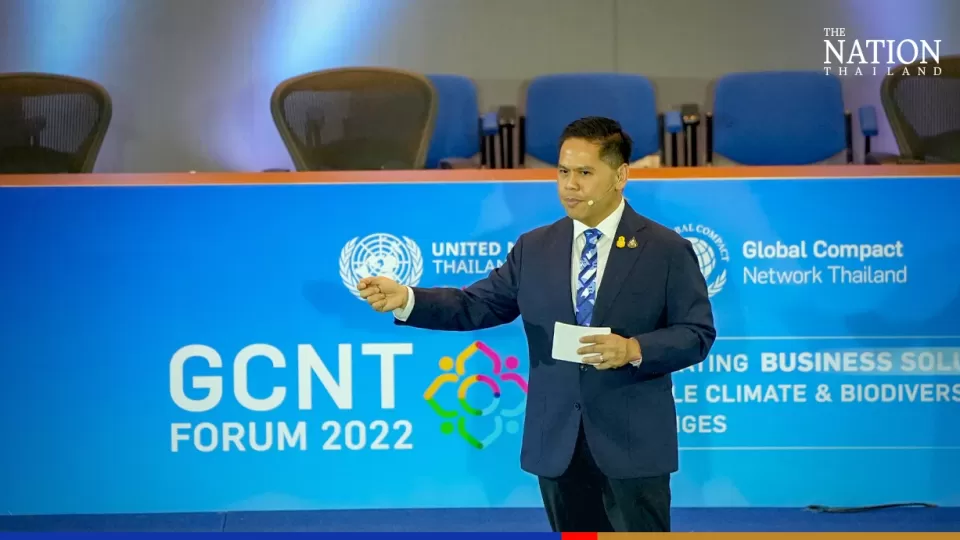November 3, 2022
BANGKOK – During the Global Compact Network Thailand (GCNT) forum at United Nations Conference Centre in Bangkok, he said climate change had impacted Thailand’s society and the economy, especially the elderly and underprivileged.
He pointed out that even though Thailand was ranked 22nd among top greenhouse gas producers, Bangkok was ranked 9th as those most at risk from climate change.
“This year, the flood crisis caused damage to the country similar to last year,” he said, adding the flood impact would be more severe in the future.
Varawut said Thailand is working on alternative energy, electric vehicles, carbon capture and storage, waste management and agriculture improvement to deal with climate change.
He added that Thailand has made a carbon credit trade agreement with Switzerland.
“Tackling climate change is about ensuring that the global temperature will not rise further,” he said, warning that people would suffer if they did not do anything.
He expected Thailand’s carbon emissions to peak in 2025 at 368 million metric tons of carbon dioxide equivalent before declining.
“Thailand aims to achieve carbon neutrality in 2050 and reach net-zero carbon emissions in 2065,” he said.
He added that the Environment Ministry is working on a draft act on climate change to encourage entrepreneurs to take part in tackling climate change. It is expected to be proposed to the Cabinet by the end of this year.
Varawut said he would propose updated strategies to reduce greenhouse gas emissions by 40 per cent within 2030 during COP27, which is currently under review.
“The strategies are short term and long term, such as applying technologies, developing carbon credit trade mechanisms, both domestic and overseas, and increasing carbon capture and storage,” he said.
Thailand has the potential and is ready to deal with climate change, Varawut said.
“Cooperation from every sector will enable Thailand to move towards carbon neutrality in a sustainable manner,” he added.
Up to 29 countries have started carbon credit trading, in which the carbon tax rate ranged from US$0.08 to $137 (3.01 to 5,158 baht).


